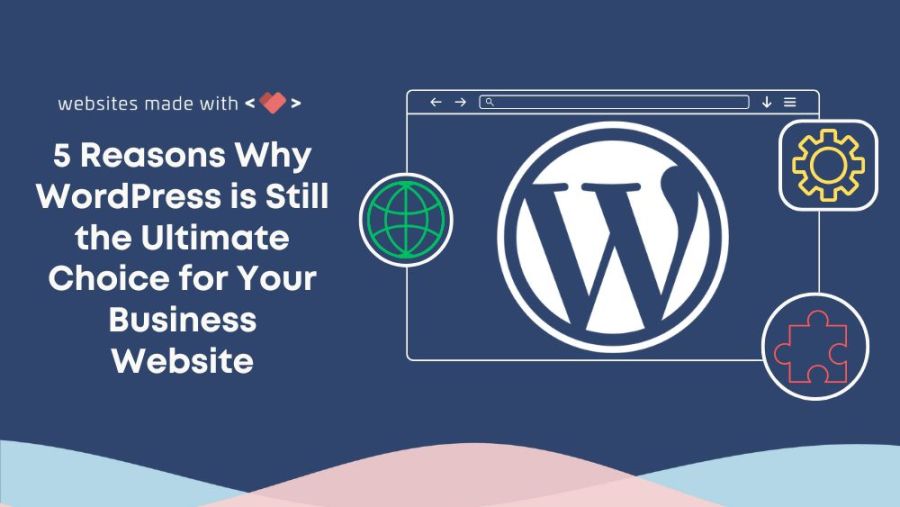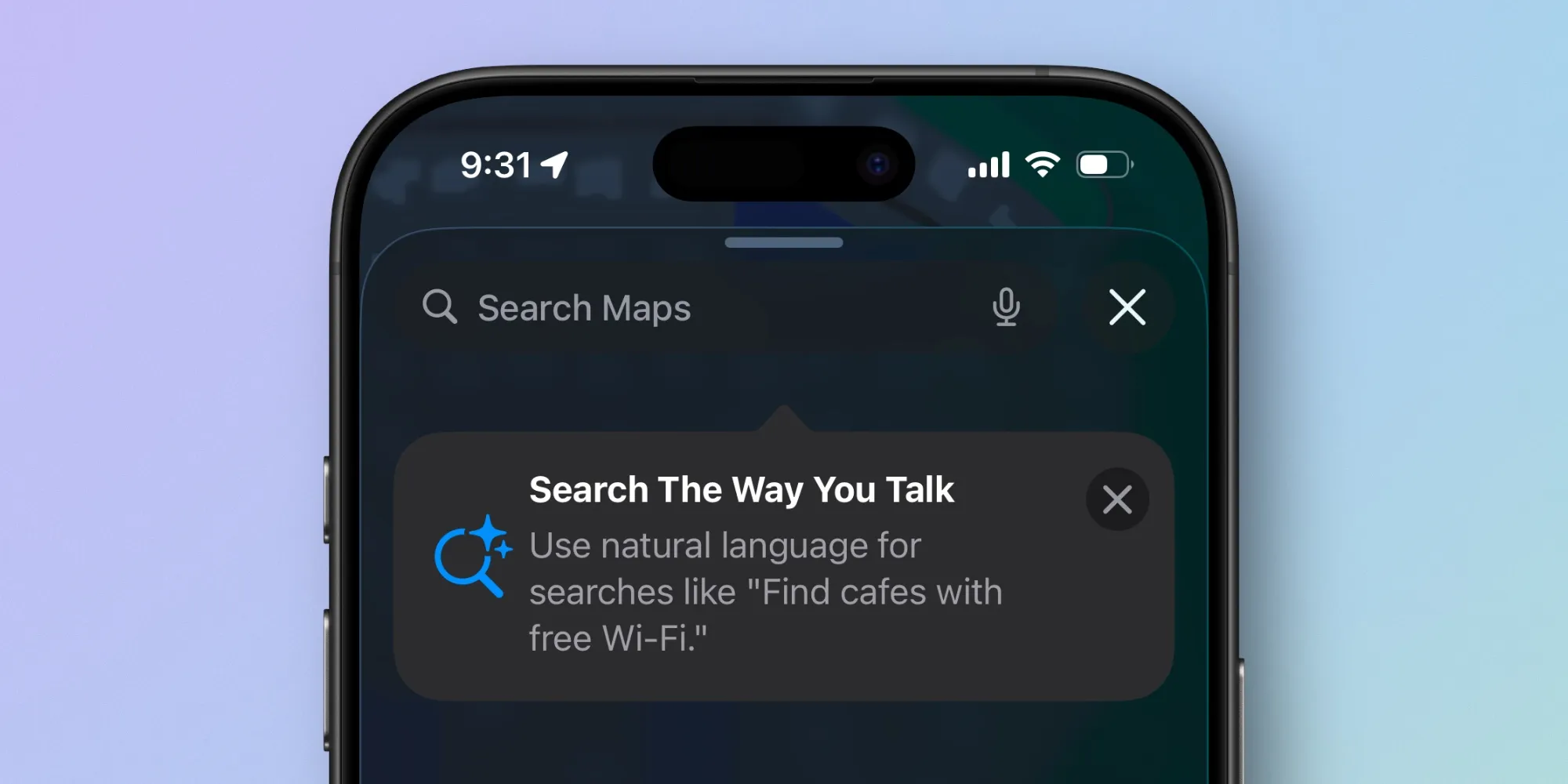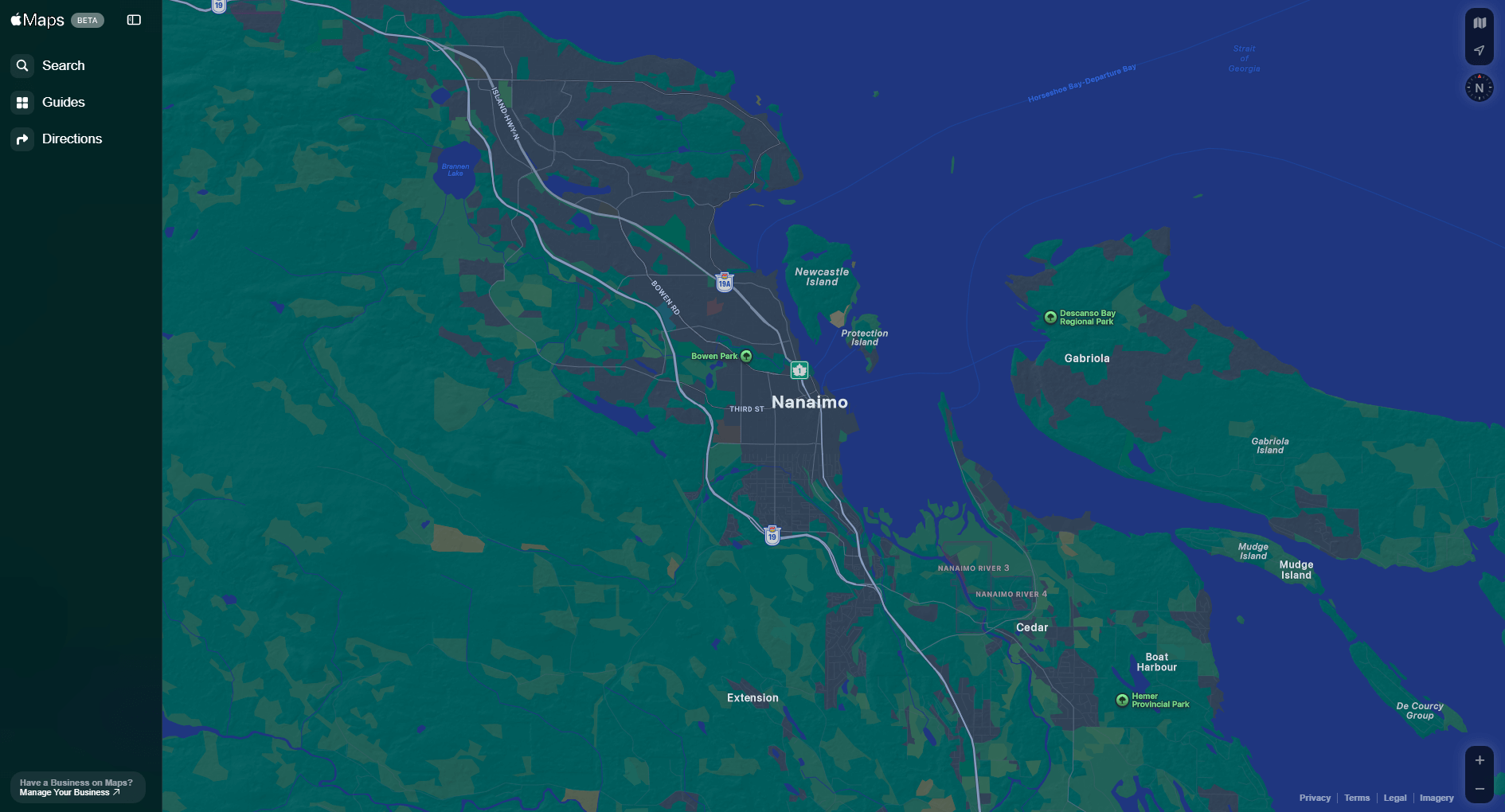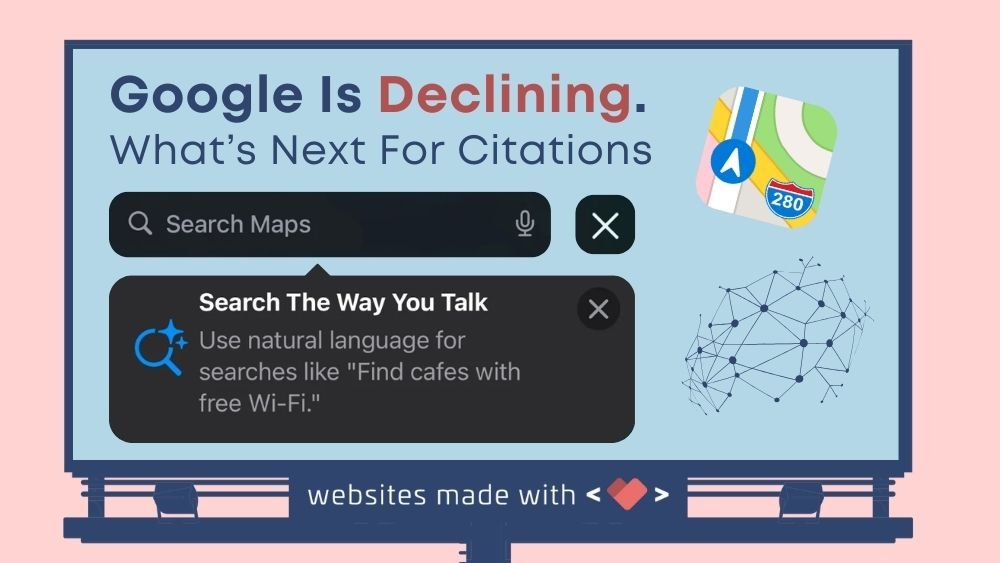
Google Is Declining: What’s Next For Citations
Google isn’t the untouchable giant it once was. In 2022, studies showed that nearly 40% of Gen Z users start their product or local discovery on platforms like TikTok or Apple Maps instead of Google (source – WARC). That’s a huge chunk of potential customers bypassing Google entirely! Meanwhile, AI-powered searches and in-app platforms like Apple Maps are eating into Google’s territory.
Why does this matter to you? Customers are searching differently now. They’re using apps, voice assistants like Siri, and even social media to find businesses. If you’re only focused on Google, you’re leaving money on the table. Smaller search engines like Apple Maps aren’t just “nice to have”—they’re becoming essential for reaching today’s customers.
Why Citations Are Your Secret Weapon
You might be wondering, “What’s a citation, and why should I care?” A citation is any online mention of your business’s name, address, and phone number (NAP). Think of it as your business’s digital footprint across the web—on directories, apps, and search engines. Citations are the backbone of local search visibility, and here’s why they’re critical:
- Consistency Builds Trust: Search engines like Google, Bing, and Apple Maps use citations to verify your business’s legitimacy. If your address is listed as “123 N Street” on one site and “123 North Street” on another, it confuses search engines and customers alike. Inconsistent information can hurt your visibility and make customers doubt your reliability.
- Clicks Are Declining, Citations Are Rising: Fewer people are clicking through to websites from search results. Instead, they’re relying on quick info from apps like Apple Maps or voice assistants like Siri. Accurate citations ensure your business pops up when someone asks, “Hey Siri, find a coffee shop near me.”
- Smaller Search Engines Matter: While Google still uses citations as a trust signal, platforms like Bing and Apple Maps rely on them even more. As Google’s dominance wanes, these platforms are stepping into the spotlight, making citations more important than ever.
Is Your Citation Strategy Working?
To make sure your citations are helping, not hurting, your business, ask yourself these questions:
- Is it working? Are customers finding you on Apple Maps, Bing, or other platforms? Check your analytics to see where your calls and visits are coming from.
- Are there errors? Search for your business online. Do you see mismatched addresses, old phone numbers, or outdated hours? These errors can push customers to your competitors.
- How do I fix them? Use tools like Apple Business Connect to claim and update your listing. For broader citation cleanup, talk to our team at Websites Made With Love to ensure consistency across directories.
- Am I better than my competitors? Search for businesses like yours on Apple Maps. Are your competitors’ listings more complete or accurate? A polished listing with photos, reviews, and up-to-date info can set you apart.
- How do I prove it? Track your performance. Are you getting more calls or visits after optimizing your citations? Tools like Google Analytics or Apple Business Connect insights can show you the impact.
The Power of Apple Maps for Your Business
Apple Maps is no longer just a navigation app—it’s a major player in local search. As the default navigation app for iOS devices, Apple Maps connects businesses to over half of U.S. smartphone users. That’s a massive audience you can’t afford to ignore. According to NearMedia.co (2023), Apple Maps drives 10% of phone calls and 5% of website visits that Google Business Profiles (GBP) don’t. That means Apple Maps is picking up customers Google is missing.
Apple’s answer to GBP is Apple Business Connect, a tool that lets you claim and manage your business listing on Apple Maps. Think of it as your business’s digital storefront on every iPhone, iPad, and Mac. By claiming your listing, you ensure customers see accurate details like your hours, address, phone number, and website. This isn’t just about visibility—it’s about trust. Customers are more likely to visit or call a business with consistent, reliable information.
How to Get Started with Apple Maps
Ready to tap into Apple Maps’ potential? Here’s how to make it work for your business:
- Claim Your Business on Apple Business Connect: Open Apple Maps, search for your business, and select “Claim this place.” Follow the steps to verify your ownership. This process can be a bit clunky (yes, it’s not as user-friendly as Google Business Profile), but it’s worth the effort.
- Fill Out Every Detail: Add your business hours, phone number, website, photos, and any special offerings. The more complete your listing, the more likely customers will choose you.
- Keep It Consistent: Make sure your NAP (name, address, phone number) matches exactly across Apple Maps, Google, Bing, and other directories. Even small differences can hurt your visibility.
- Encourage Reviews: Just like Google, Apple Maps lets customers leave reviews. Positive reviews boost your credibility and make your business stand out. Politely ask happy customers to share their experiences on Apple Maps.
- Monitor and Update Regularly: Keep your listing fresh. Update hours, add new photos, or promote seasonal offers through Apple Business Connect to stay relevant.
Why You Can’t Afford to Ignore Apple Maps
As Google’s grip on search weakens, platforms like Apple Maps are stepping up. With AI and voice assistants like Siri pulling information from multiple sources, having a strong presence on Apple Maps is no longer optional—it’s a game-changer. Small businesses that overlook this opportunity risk losing customers to competitors who are already optimizing their Apple Maps listings.
Think about it: over half of Canadian smartphone users are on iOS devices, and Apple Maps is their default navigation app. That’s a huge pool of potential customers looking for businesses like yours. Plus, with approximately 10% of phone calls and 5% of website visits coming from Apple Maps (and not Google), you’re missing out if you’re not listed or your information is outdated.
Yeah, But Isn’t This Just For America?
The United States usually gets the first slice of cake because most of the tech giants are located there. Usually, Canada and other countries follow suit sometime after. That’s the benefit of being a Canadian business – you still have time.
At Websites Made With Love, we take the time to learn and watch what is working (and not working) in the United States so we can better prepare your website to rank competitively.
The Bigger Picture: AI and the Future of Search
AI is reshaping how customers find businesses. Smart assistants like Siri, Alexa, and Google Assistant rely heavily on citation data to deliver accurate results. If your business information isn’t consistent across platforms like Apple Maps, you could be invisible to these AI-driven searches. As Google’s search ad share is projected to fall, diversifying your presence across multiple platforms is critical to staying competitive.
This isn’t about abandoning Google—it’s about expanding your reach. By combining a strong Google Business Profile with a polished Apple Maps listing and consistent citations across the web, you’re casting a wider net to capture customers from every angle.
Take Action Now
Don’t let your business get left behind in the shifting search landscape. Here’s a quick action plan to get started:
- Claim Your Apple Maps Listing Today: Visit Apple Business Connect and claim your business. It’s a small time investment for a big payoff.
- Audit Your Citations: Search for your business on Apple Maps, Google, Bing, and major directories like Yelp. Fix any inconsistencies in your name, address, or phone number.
- Use Citation Management Tools: If managing citations feels overwhelming, tools like Moz Local or Yext can streamline the process and ensure consistency.
- Track Your Progress: Use analytics tools or Apple Business Connect insights to measure how many calls, visits, or clicks your listing generates.
- Stay Ahead of Competitors: Regularly check your competitors’ listings on Apple Maps. A more complete, engaging listing will give you the edge.
What’s Next?
Google may still be a major player, but its decline signals a new era of search. Apple Maps, powered by Apple Business Connect, is a rising star that small businesses can’t afford to ignore. By claiming your listing, optimizing your citations, and keeping your information consistent, you’re not just keeping up—you’re staying ahead.
In a world where customers are searching in new ways, being everywhere they look is the key to success. Take the first step today and claim your Apple Maps listing—your customers are already searching for you there. Or, book a call with our team to get you set up.

Mark Beuerman
Related Articles That Might
Interest You

From Local Waters to Global Stages: Our DesignRush Nomination
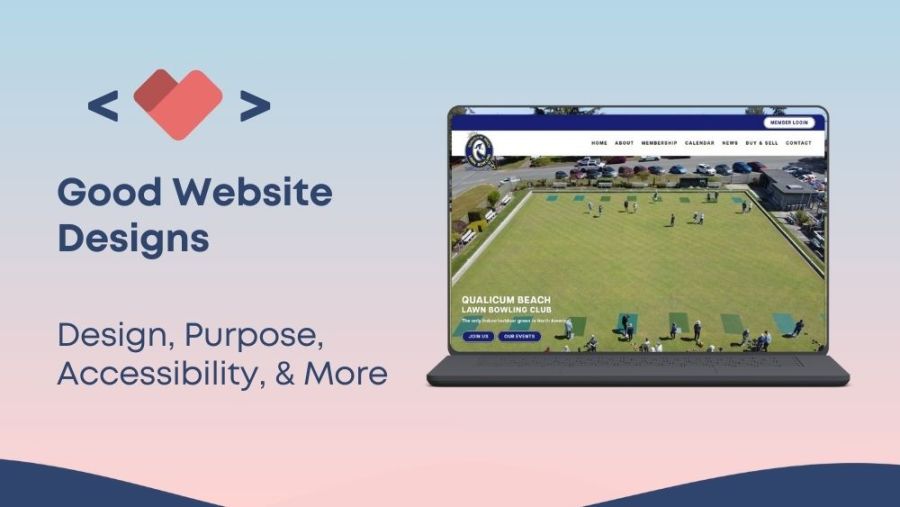
What makes a good website design?
